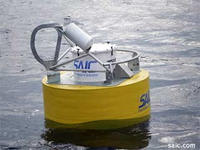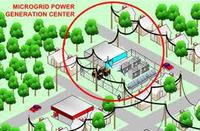-
Industry fights Pentagon efforts to restrict exporting of infrared products
The global market for infrared technology products will be worth about $2.6 billion dollars by 2017; the technology can be used for commercial products such as automotive, surveillance, and security industries – and is heavily used by the military; three major U.S. infrared equipment makers fight the Pentagon’s efforts to restrict exports of devices based on the technology for fear these devices may enhance the military capabilities of adversaries of the United States
-
-
The costs, benefits, and efficiency of aviation security measures
The threat of terrorist attack on American aviation has made the system the focus of intense security efforts, but it is difficult to determine if the benefits outweigh their cost; efficient security policy — a focus on getting the most security for the least cost — should be the priority in an era of fiscal austerity, says a new RAND report
-
-
China’s growing role in U.S. infrastructure building, maintenance
The building and maintenance of heavy infrastructure in the United States, which includes road, mass transit, marine, and building construction, is worth $44.1 billion per year and $12 billion in annual wages; bridge and tunnel construction is worth an estimated $24 billion in revenue and $4.3 billion in wages; many wonder why, in this difficult times, states and municipalities hire Chinese companies for many of these infrastructure projects
-
-
Japan awards tsunami buoy contract to SAIC

The Japan Meteorological Agency (JMA) in Tokyo, Japan, has awarded (SAIC) a contract for the production and delivery of six SAIC Tsunami Buoy (STB) systems; the STB systems will be deployed at locations in the northwest Pacific Ocean approximately 200 nautical miles east of Sendai, Japan
-
-
Smart agriculture will increase global food production, reduce environmental impact

Global demand for food is expected to double by 2050 due to population growth and increased standards of living; a new study, based on analysis of agricultural data gathered from around the world, offers hope that with more strategic use of fertilizer and water, we could not only dramatically boost global crop yield, but also reduce the adverse environmental impact of agriculture
-
-
Most cybersecurity incidents in Europe remain undetected or not reported
In a new report, the EU cyber security agency takes a snapshot of existing and future EU legislation on security measures and incident reporting; the analysis underlines important steps forward, but also identifies gaps in national implementation, as most incidents are not reported
-
-
Alcatel-Lucent offers first-responders access to multiple video feeds using 4G LTE
New first responder video solution provides mission-critical information on handheld devices to fire, police, and ambulance services to improve responsiveness, safety, teamwork, and cost efficiency; the First Responder Video solves the network congestion problem by optimizing bandwidth use and integrating multiple video feeds and other operational data into one single stream
-
-
Antibiotic residues in sausage meat may promote pathogen survival

Antibiotic residues in uncured pepperoni or salami meat are potent enough to weaken helpful bacteria that processors add to acidify the sausage to make it safe for consumption; sausage manufacturers commonly inoculate sausage meat with lactic-acid-producing bacteria; by killing the bacteria that produce lactic acid, antibiotic residues can allow pathogenic bacteria to proliferate
-
-
Campaign against terrorist financial networks complicated, demanding
The U.S. Attorney for the Southern District of New York and the Drug Enforcement Administration (DEA) last week announced the seizure of $150 million in cash from “entities linked to Hizballah,” including the now-defunct Lebanese Canadian Bank (LCB); the announcement may seem like a big win in the war on terror, but it is merely a small dent as terrorist organizations use a myriad of tactics to move their money around undetected
-
-
One solution to the aging U.S. grid: microgrids

Most Americans do not have to think much about energy reliability; they plug in a computer and it powers up; they flip a switch and the lights come on; while very reliable today, the U.S. electricity grid is old and has gone at least five decades without a significant technological upgrade. The U.S. Department of Energy’s National Renewable Energy Laboratory is working with industry on one solution to help maintain a secure, reliable flow of energy: microgrids
-
-
Cooling coal emissions would clean air, lower health, climate-change costs

In the United States there are about 1,400 electric-generating unit powered by coal, operated at about 600 power plants; the estimated health costs of burning coal in the United States are in the range of $150 billion to $380 billion, including 18,000-46,000 premature deaths, 540,000 asthma attacks, 13,000 emergency room visits, and two million missed work or school days each year; scientists estimate that implementing large-scale cryogenic systems into coal-fired plants would reduce overall costs to society by 38 percent through the sharp reduction of associated health-care and climate-change costs
-
-
Siemens software which controls power plants vulnerable to hackers
RuggedCom is a Canadian subsidiary of Siemenswhich sells networking equipment for use in harsh environments with extreme and inclement weather; many critical infrastructure operators of power plants, water systems, dams, and more; a security specialist discovered a flaw in the software, a flaw which allows hackers to spy on communication of infrastructure operators and gain credentials to access computer systems which control power plants as well as other critical systems
-
-
Maldives to build floating islands to save country from rising sea levels
The Maldives Islands, a low-lying chain of twenty-six atolls in the Indian Ocean, are sinking; more precisely: due to global warming, the sea level is rising over the islands, most of which sit lower than three feet above the rising water; the Maldives government has embarked on an ambitious project: build floating islands, anchor them to the ocean floor, then relocate most of the population of 300,000 – and some of the tourist attractions – to them
-
-
Yankee Stadium awarded SAFETY Act designation

The SAFETY Act designation has been given to many defense and security companies since DHS started awarding it in 2004, but Yankee Stadium is the first sports arena to become immune to general lawsuits which could be filed by victims of future terrorist attacks
-
-
U.S. may already have authority to issue infrastructure protection regulations
While the president and Congress continue to debate the cybersecurity bill, the White House Office of Management and Budget may already have sufficient statutory authority to enact new regulations through the normal notice-and-comment rulemaking process; the basis for such regulations would be the Data Quality Act (DQA) which sets the standards for the integrity of data used by federal agencies in public disseminations
-
More headlines
The long view
Factories First: Winning the Drone War Before It Starts
Wars are won by factories before they are won on the battlefield,Martin C. Feldmann writes, noting that the United States lacks the manufacturing depth for the coming drone age. Rectifying this situation “will take far more than procurement tweaks,” Feldmann writes. “It demands a national-level, wartime-scale industrial mobilization.”
Trump Is Fast-Tracking New Coal Mines — Even When They Don’t Make Economic Sense
In Appalachian Tennessee, mines shut down and couldn’t pay their debts. Now a new one is opening under the guise of an “energy emergency.”
Smaller Nuclear Reactors Spark Renewed Interest in a Once-Shunned Energy Source
In the past two years, half the states have taken action to promote nuclear power, from creating nuclear task forces to integrating nuclear into long-term energy plans.
